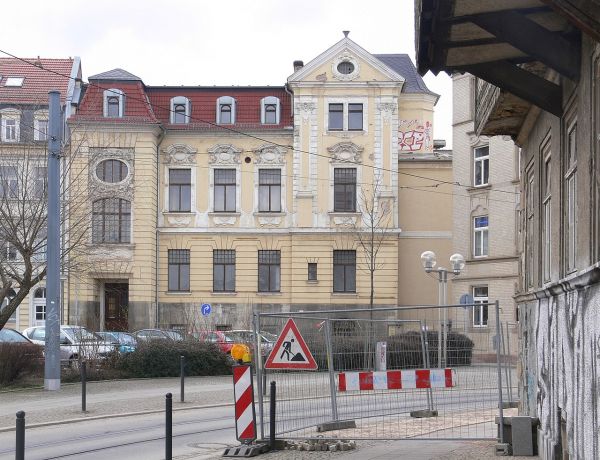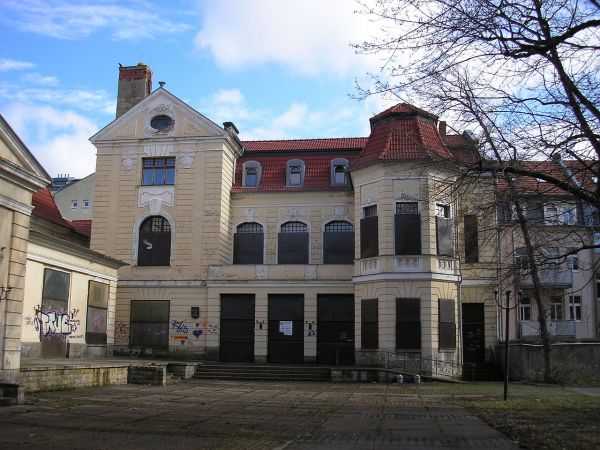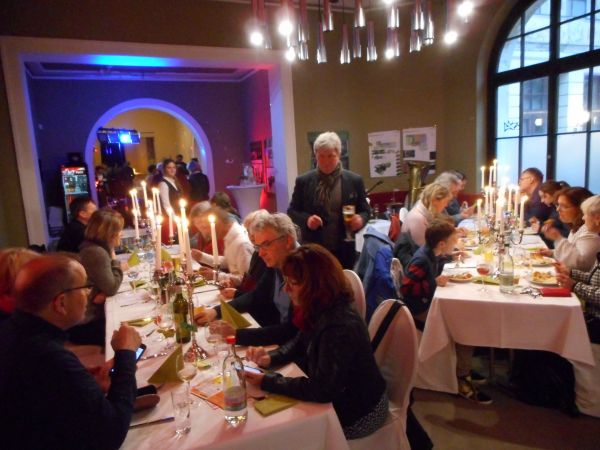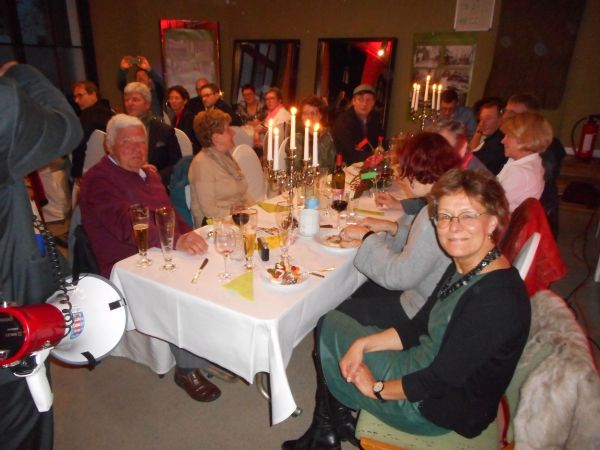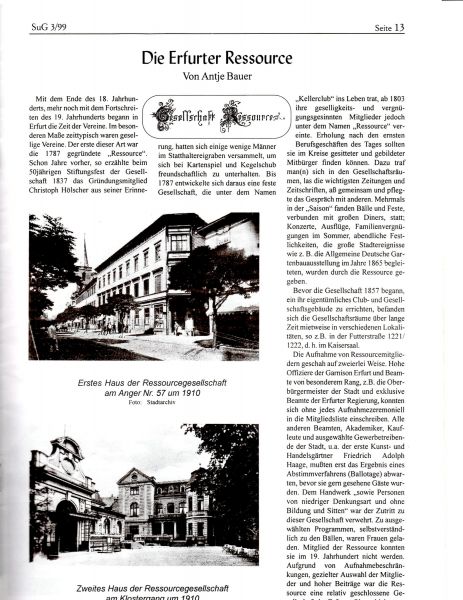The Erfurter Ressource
The Erfurter Ressource
During my last trip to Erfurt, Germany, in May, 2019, before the onset of the Covid lockdown, my friends Antje and Jens Bauer invited me to a formal dinner at the old disused Schauspielhaus, Erfurt's former stage-theatre. When the city-government of Erfurt constructed its new theatre in 2003, it abandoned the Schauspielhaus, which then fell on hard times and faced certain demolition. It became a hangout for vandals, and even served police-SWAT teams as a training-ground—a terrible fate for a wonderful old Art-nouveau building.
However gloomy and abused it looks on the outside, the Bauers and their friends made the interior cheerful and bright, Jens acting as the master of ceremonies. They have created a Verein, in English, a private association, with plans for restoring the building, and putting it to good use. (Note in the "Rear-view" photo the space behind the building—large enough for a beer-garden or receptions.)
Over the course of the evening, I learned that the old Schauspielhaus did not start life as a theatre, but as a private-club, named "die Erfurter Ressource" a different kind of Verein. Antje published an article about the Ressource in the March, 1999, issue of Erfurt's Stadt und Geschichte magazine, while she served as director of the Stadtarchiv.
The Archiv stores every Erfurt newspaper going back hundreds of years,. It also houses collections of correspondence from important citizens in Erfurt, and collections of family photographs. The Archive also houses official literature, government documents, real-estate records, and tax-records--going back nearly a thousand years!
In the article, Antje does not describe die Erfurter Ressource as simply a private club, but as the social-centre for the business-class. Businessmen went there after work to relax and socialize, to read newspapers and magazines, and to enjoy coffee, tea, or something stronger. Their wives socialized in a separate area, and their children had their own play-space. The Ressource was central to their social life, since it served as a component of their corporate identity. As one German expressed it: two Germans, a conversation; three Germans, a club. Most Germans belonged to clubs, regardless of their social-class or standing. They formed clubs related to their jobs, their church and political affiliation, and their hobbies, like stamp-collecting, bird-watching and so on.
Naturally, when the Nazis and Soviets gained contol of Erfurt, they put an end to private spaces for the entire country. They did not want any group to exist independently of government control. My readers have to understand that, in a freedom-loving society, a government protects private associations. In a dictatorial society, on the other hand, the government controls all associations. After all, It has to prevent the ermergence of an independent point-of-view and a culture of dissent. More than that, the dictator has to weed freedom-loving concepts from the vocabulary, deny to the public the ability to think outside the realm of accepted doctrines, and prevent them venturing into freedom-loving concepts again.
Regarding the term Ressource, Franz Liszt composed one of my favorite pieces for piano, "Au Bord d'une Source". In English, "Beside the Spring." I heard it for the first time in college on a recording by pianist Vladimir Horowitz. "Au Bord d'une Source" is programmatic, inasmuch as it imitates the sound of spring-water gushing from the ground and spilling over rocks. My father worked a lot with real estate and said that few sounds appeal to people more than water spilling over rocks. It inspired Liszt, and apparently Horowitz too, given his magical performance of it.
I looked up "Ressource" on Wikipedia, which says that the latin root-word, resurgere, means to "gush forth." Our human associations have that effect on us. We can do things in conjunction with others that we cannot do on our own. Associations are serendepitous and have a positive effect on the possibilities. We can never accomplish as much as isolated units, which a dictator imposes on us. A dictator limits movement; so that, instead of fresh, flowing water, we get stagnant water, a stagnant thought-life, and a stagnant economy as a result.
In a freedom-loving society, people with fresh commercial ideas, scientific formulae, or industrial processes associate with venture capitalists and create new companies. This type of association has special importance in the contemporary high-tech world. A nation like ours depends on them. How left-wing Americans can turn a blind eye to their utility baffles me.

